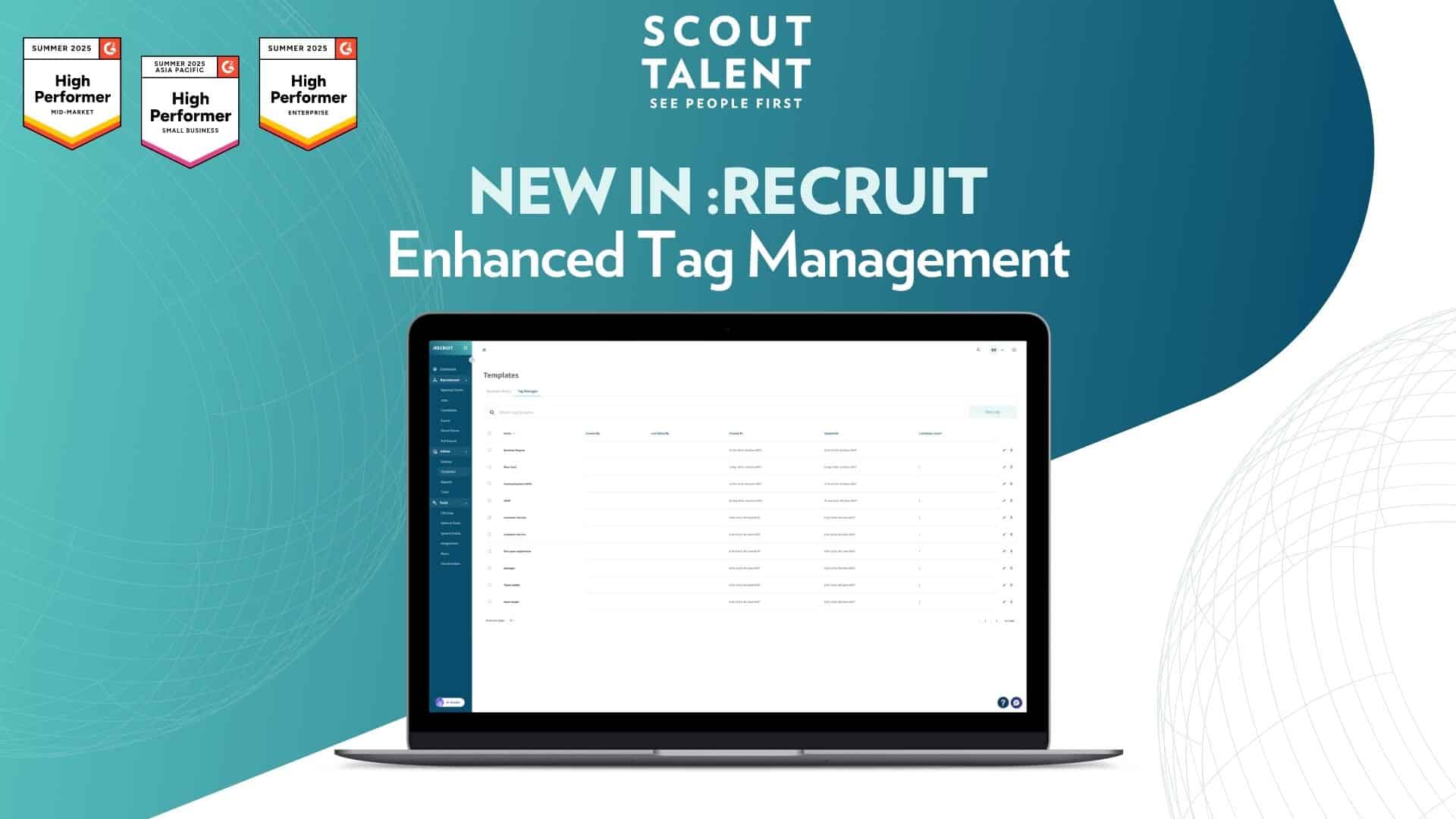No one wants to feel they are the same as everyone else; treated as though they are one of many or just a number. In today’s recruitment landscape where certain industries are facing a talent shortage, employers need to offer the best candidate experience possible.
When thinking about recruitment, it needs to be kept in mind that candidates are essentially customers. They are consumers of your employer brand and are researching what you can offer them professionally. Therefore, it is critical that you focus on personalisation to make candidates feel valued from the moment they apply for a role with you. If you don’t, chances are your competitors will.
So, how do you ensure the recruitment process is a personalised experience?
Communication is the key.
While it’s easy to imagine spending hours writing individual responses to every application, using automation to enhance how you communicate with candidates and improve their experience can in fact save you time.
Read on for ways you can ensure candidates are given a personalised recruitment experience that will make them want to join your organisation even more.
Personalised emails and auto responders
First and foremost, it’s important to respond to all candidates in a timely manner. Not only is this a great thing to do for your employer brand, but it will ensure your applicants feel acknowledged. 74% of people say the worst part of applying for a job is waiting to hear back, so don’t disappoint your candidates.
With Scout Talent: Recruit, you don’t need to actively respond to each application you receive with a confirmation email. The level of automation and customisation within the system allows you to create placeholders within email templates so you’re able to auto-fill information such as name, job title and other details relating to a specific role and candidate.
Make sure you’re not only focusing on the candidates you’re taking through to the next stages. Treat those you’re not wanting to interview with respect and respond to unsuccessful applicants, by name, after 48hrs so they don’t feel they were quickly rejected. Setting up a delayed unsuccessful response is simple to do and can go a long way in making candidates who don’t meet essential criteria feel like their application was carefully considered. However, if you have found a candidate to be unsuitable after they’ve already interviewed with you, it’s best to keep away from email rejections and contact them over the phone instead.
Share What You Can
Don’t limit yourself to using personalised automated emails for updates, confirmations, rejections or interview invites. Think outside the box and consider what information you could be sharing with candidates that will help them in the recruitment process and get them excited about what you have to offer.
If you’re hiring a marketing assistant, share with them a staff profile story from someone within the marketing team. If you’re hiring graduates, share with them information about the company and the experiences you offer for young professionals. Maybe your organisation has a blog with plenty of industry content – share this with candidates so they can learn more about you and the world you operate in.
By creating emails that address the candidate by name and offer information that will be of value to them, they will feel supported through the recruitment experience and as though you’re truly encouraging them to succeed.
SMS Reminders & Updates
Don’t overlook the power of being able to send updates right into candidates’ hands. Get directly to the candidate with an SMS, sent within appropriate hours of course. Use SMS to thank candidates for their time after interviews, after they’ve completed required testing, or to confirm upcoming interview times. And don’t forget – use their name in anything you send! Beyond showing that you’re an employer who knows how to keep people informed, candidates will appreciate the extra effort you go to in making sure they’re recognised.
Move Away from Generic Questions
It’s easy to fall into the trap of asking generic interview questions, especially when conducting interviews with many candidates. However, it is vital that a high amount of effort is put into asking the right questions, and ones that specifically focus on the individual candidate. Without doing so, you’re putting yourself at risk of making an uninformed hire.
In addition to helping you make the very best hire, asking personalised questions will let the candidate know that you have invested time into understanding their application, the strengths they can bring to a team and where you’d specifically like to find out more about them.
Use the company names of past employers and include role titles in the questions you ask. Instead of saying “Could you give me an overview of your experience?” approach the question in a more candidate-centric way, such as “I see you’ve had experience at (organisation), can you tell me about what experience and knowledge you gained working here?”
Make sure you do your research – find out more about their most recent workplace and ask questions that relate to that industry or job. Show that you are listening to the candidate and don’t ask questions where they will need to repeat information they’ve already shared with you during the interview. And remember to ask questions that relate to their aspirations and can help you find out more about them and their potential cultural fit within your team.
Editor’s Note: Scout Talent recruitment software allows HR teams and hiring managers to easily personalise communication with candidates to provide an unbeatable recruitment process. Talk to us today about how Scout Talent can enhance and streamline your recruitment.



